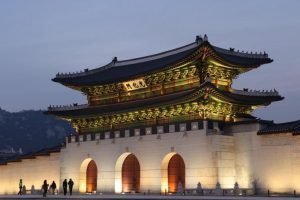The martyrdom of Rutilio Grande confirms that there is no Christian love without commitment to one’s neighbour and that authentic community is built on truth, justice, and mercy.
Father Grande was born was born on 5 July 1928 into a family of rural farmers near the same Salvadoran village where he would be killed by his government 47 years later. At the age of 12 he enrolled in a minor seminary in San Salvador. There he would embrace a life that reinforced a faith of piety and otherworldly focus. Towards the end of his Jesuit formation, however, the Second Vatican Council dramatically changed his course.
Father Grande’s ordination was celebrated with his first Mass in El Paisnal – a community he had left as the son of a very poor family. When he visited El Paisnal, he refused any special treatment because he wanted to be treated and recognised as he had always been. Members of the community remember that he did not like to be called Don Tilo or Padre Tilo; no, he was always just Tilo.
Father Grande began his ministry as an educator at the major seminary in San Salvador, where he was deeply involved in the formation of seminarians.
In the mid-1960s, Father Grande undertook an important experiment in pastoral formation. He gathered groups of seminarians from all over the country during their annual holidays and embedded them in poor communities. In this way, the seminarians would come into contact with the reality and the people they would eventually serve.
Father Grande was a passionate preacher and inspired organiser who constantly feared that the church was not walking with the people, but in front of them. His deep self-awareness was evident when he recognised his shortcomings in working with poor communities, including moving too fast, not listening carefully enough and imposing solutions from above. His prophetic ability to hear the cry of the poor challenged the government, the military, wealthy landowners and even his church leaders.
Father Grande eventually left the seminary and travelled to Quito, Ecuador, to the Institute of Pastoral Ministry, sponsored by the bishops of Latin America. There he learned how to galvanise poor communities oppressed by the social forces around them. What he learned in Ecuador would prove transformative for the rural farming communities around San Salvador.
What Father Grande learned and lived was a simple truth: until the marginalised communities he served created their agency, until they acted on their reality as a church community, nothing would change. An outside leader could not come in and transform poor communities.
Only local lay leaders could encourage communities to become agents of their change. The role of the Catholic Church, he believed, was to help those leaders emerge, to support them, to form them and to walk with them. Inspired by the Gospel, these community leaders would become the most effective agents for the integral development of their communities.
For two years, Father Grande and his team led a delicate “mission” to very poor communities around his hometown. Through their own reading of Scripture, these communities came to realise that it was not God’s will that they should remain poor.
Building the kingdom of God meant that they had to stand up for their communities in a peaceful but forceful way. Throughout Father Grande’s pastoral “experiment” in the rural villages of El Salvador, Archbishop Romero watched closely as his friend and confidant tried to apply the Church’s social teaching to the reality of poor, oppressed rural communities.
Slowly, people began to change their attitudes and realise that their oppression was not God’s will, but was contrary to God’s love for them. But as their awareness and demands for change grew, so did the danger they faced. Soon both Father Grande and the communities he served were receiving threats, mainly from wealthy landowners who felt threatened by the priest’s work encouraging rural peasants to organise for a better life.
Archbishop Romero witnessed the risks Father Grande took and saw the path he willingly chose to defend the people he loved. On 12 March 1977, Father Grande was murdered by government death squads at the behest of wealthy landowners.
In his homily at Father Grande’s funeral, Archbishop Romero said: “True love is what Rutilio Grande brings with his death, with two campesinos beside him. This is how the Church loves, dying with others and being present with others in the transcendence of the Kingdom. The Church loves them, and it is significant that while Rutilio walked with his people to carry the message of the Mass and salvation, he fell there, riddled with bullets. Rutilio was a priest with his people, he walked with his people to identify with them, to live with them, but not only as a revolutionary inspiration. Brothers and sisters, he was an inspiration of love, and precisely because it was for love, he was an inspiration”.
Three years later, Romero was assassinated for his outspoken criticism of the military and his work on behalf of the oppressed in El Salvador.
Fr. Grande’s beatification process, opened in March 2014 by the Archbishop of San Salvador, José Luis Escobar, was concluded on 16 August 2016.
On 21 February 2020, Pope Francis approved the beatification of Father Grande and his two lay companions. The Beatification Mass was celebrated on 22 January 2022, with Cardinal Gregorio Rosa Chávez presiding on behalf of the Pope.
Today, 48 years after their martyrdom, we recall the words of Pope Francis referring to Rutilio and his companions: “They stood at the side of the poor, bearing witness to the Gospel, to truth and justice, even to the shedding of their blood. May their heroic example inspire in everyone the desire to be courageous agents of fraternity and peace”.
This message reminds us today, in this Jubilee Year, more than ever, that the Church must continue to be a light in the darkness, courageously proclaiming the Kingdom of God and denouncing all that threatens human dignity. The martyrdom of Rutilio Grande confirms to us that there is no Christian love without charity, and that authentic community is built on truth, justice and mercy.









